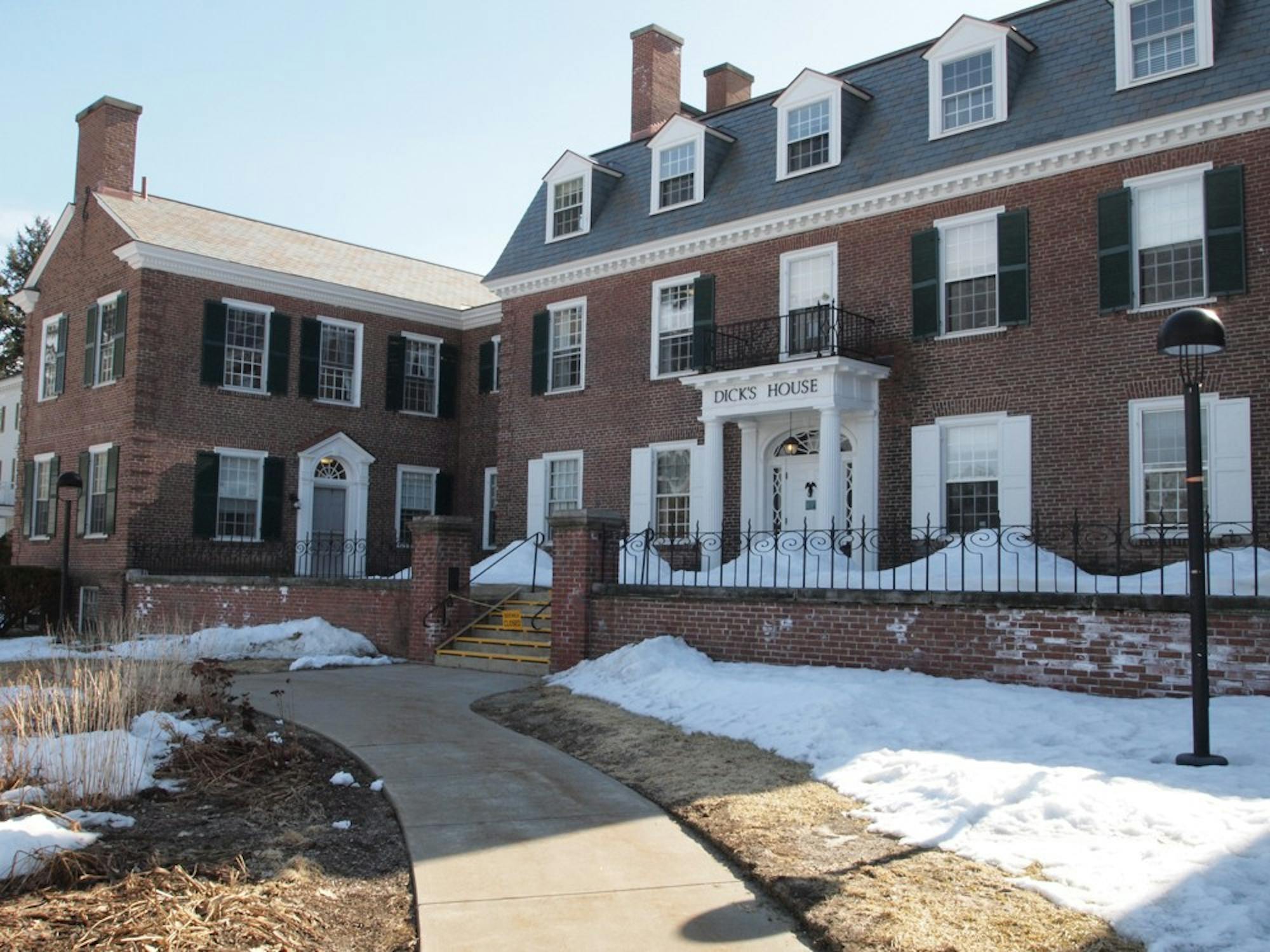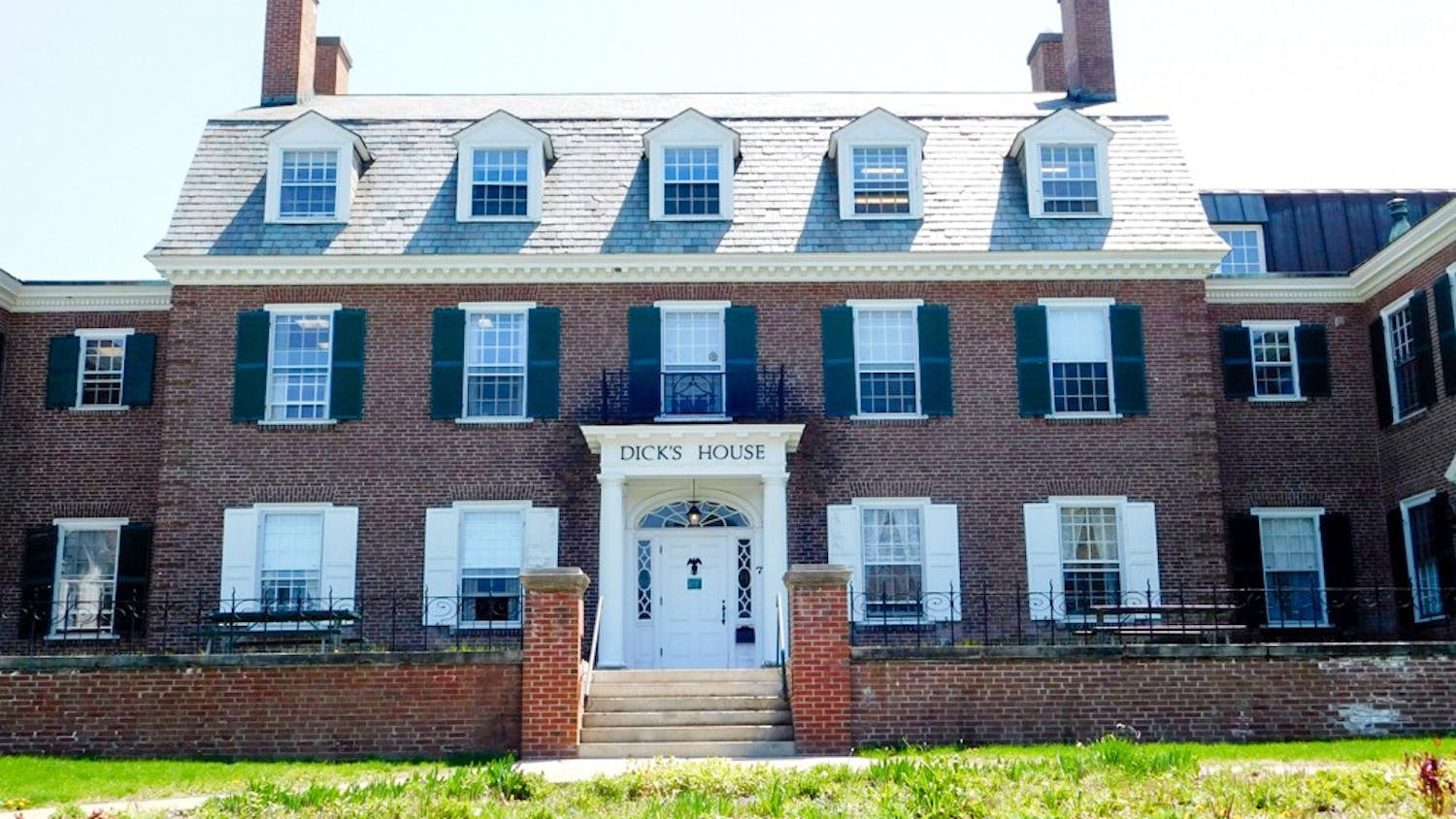It was the first event of O-Week, and the stress of making friends mixed with my social anxiety formed a poisonous cocktail I could not keep down. The sounds of new voices began to stack on top of each other, causing the walls to slowly close in. My fingernails dug into my palms as I desperately tried to isolate my ears from the voices. Then, a new voice spoke into a microphone, silencing the cacophonous herd, and delivered a saving grace:
“If you need to take care of your physical or mental well-being at any point during this presentation, there is a break room available for you to do that.”
With those words, I was relieved. I became hopeful in Dartmouth’s ability to help me handle my mental health, something I was worried about going into my freshman year. After that presentation, I embarked on more research into Dartmouth’s mental health resources. The website for Dick’s House counseling services further fueled my optimism with its detailed descriptions of crisis resources, counselors, how to make counseling appointments and suicide prevention on campus.
I didn’t understand why Dartmouth’s mental health resources had such shaky reputations. On my First-Year Trip, I asked my trip leaders if there were any mental health clubs or resources on campus. The only club that came to mind was the Dartmouth Mental Health Student Union, and they mentioned the Counseling Center but said that it was really difficult to get timely appointments.
After Trips, I found numerous organizations on campus that deal with mental health. The fact that two upperclassmen weren’t aware of these organizations was a sign that these services may not be actively talked about by some students at Dartmouth.
As I began settling into my classes, my stress and anxiety took hold again. After breaking down in a particularly challenging class, I went to Dick’s House for counseling. I tearfully asked to speak to a counselor, and I was offered an appointment, but nothing immediate. Confused, I returned to my dorm.
I expected to meet with a counselor in the midst of my panic attack. This experience caused me to question my expectations of Dartmouth’s mental health services. Was the Counseling Center’s negative reputation a reality?
I quickly learned that this experience was not exclusive to me. Anna Politi ’23 told me about the experience of her upperclassman friend, who called Dick’s House to make a counseling appointment. She was offered an appointment in two weeks’ time, when the issue she wanted to talk about would no longer matter.
Upon beginning this article, I made efforts to talk to the Counseling Center about its reputation and the stigma around seeking help that may prevent students from reaching out. I went to office hours, which I later learned are reserved for people in crisis, and I called and emailed. When I went to the counseling office and asked to speak with a counselor for an interview, I was told that the earliest a counselor would be available was winter break.
MHU’s programming director, Miranda Matthews ’21, recounted her experience with the Counseling Center. Each student begins with a triage appointment, which allows a counselor to asses the student’s needs and refer them to the resource they believe will benefit them most. In Matthews’ case, the Counseling Center sent her to a therapist in the Hanover community.
Politi said she believes that administrators are making an effort to improve Dartmouth’s mental health services. Politi also mentioned that the Student Wellness Center is a good resource for people seeking an immediate space to talk about mental health.
Caitlin Barthelmes, director of the Student Wellness Center, echoed Politi’s thoughts. She mentioned skill-building workshops, personal reflection and mental health check-ins offered by the Student Wellness Center.
Barthelmes also commented on the Counseling Center’s reputation for being inaccessible.
“The loudest voices are not always representative of the full student experience,” Barthelmes said.
Barthelmes noted that other mental health resources in addition to the Student Wellness Center exist on campus, such as the Center for Social Impact, the Undergraduate Deans office, the Student Involvement Center, the Tucker Center and the Academic Skills Center. She also said that the gym works as a stress reliever for many students.
Students can also seek out ways to help other students with their mental health. MHU offers peer support training for students. Peer supporters are available for students to talk to through the MHU’s bi-weekly Late-Night Solace.
Through another resource, the Dartmouth Bystander Initiative, students receive training to intervene in potentially harmful situations. Matthews is trained in bystander intervention through the counseling center.
“My bystander training is meant to be for mental health situations, like suicide intervention,” Matthews said. “That training was with the Counseling Center, so I got a lot more information about what the center offers through that.”
According to Barthelmes, the most important factor in treating mental health is awareness. From that point, Barthelmes said, students can find what works best for them in terms of handling their stress and anxiety.
“There are so many different ways to flourish,” Barthelmes said. “It’s about knowing yourself.”
The way mental health is talked about on campus more casually, however, is a cause for concern for Politi. She recounted instances where mental illness was jokingly thrown around in conversation.
“People like to joke about mental health on campus,” Politi said. “It’s so dangerous to talk about anxiety and depression offhandedly.”
The treatment of and stigma around mental health is ultimately a world issue. One in five U.S. adults experience mental illness each year. At Dartmouth — a place that is inherently stressful — this issue deserves our attention.



